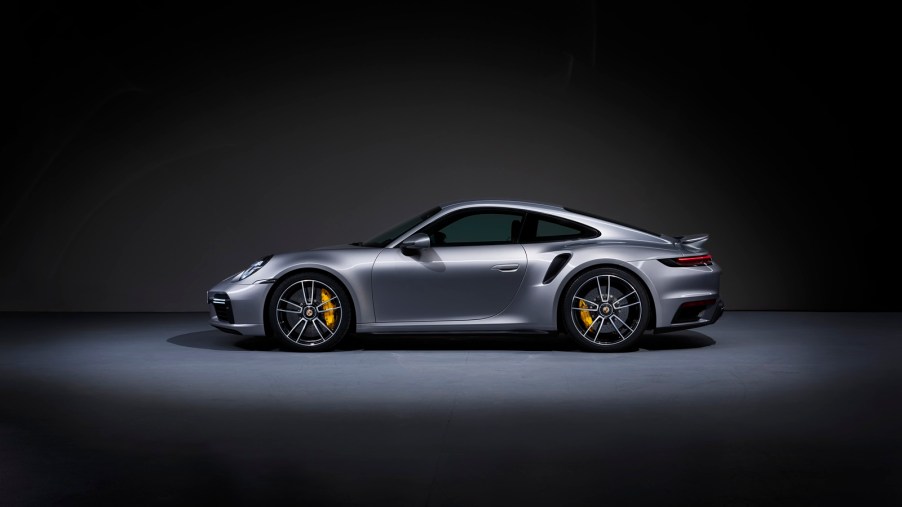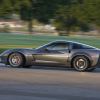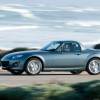
This Factory Porsche 911 Will Kill a 1/4 Mile Run in Under 10 Seconds
The Porsche 911 is synonymous with bleeding-edge speed in a livable, commute-friendly package. Fans cite the ability to put kids in their 2+2 performance car, go shopping, and drive home spiritedly. Still, sometimes the Zuffenhausen marque puts its world-class blacktop brawlers on a diet and sends them back into the ring. That’s precisely the case with the Porsche 911 Turbo S Lightweight: a contender for the performance car lightweight champion of the world.
The Porsche 911 Turbo S Lightweight drops weight and picks up speed

The full-fat Porsche 911 Turbo S is fast. Real fast. However, at 3,691 lbs, the Turbo S is heavier than closely comparable rivals like the high-revving Chevrolet Corvette Z06. However, Porsche decided to put its beloved turbocharged 911 on a diet, and the results are impressive.
| ¼ mile | 9.9 seconds |
| 0-60 mph | 2.1 seconds |
| Braking distance 100-0 mph | 279 feet |
| Top speed | 205 mph |
There’s nothing unimpressive about a sprint to 60 mph in 2.1 seconds. Speed like that establishes the Porsche 911 Turbo S Lightweight as one of the quickest gas-powered cars on the market. However, the sub-10-second quarter-mile puts the Lightweight in circles typically reserved for featherweight hypercars and hilarious flavors from the Dodge Challenger SRT Demon 170 dish.
Paired with organ-rearranging braking force, the 911 Turbo S Lightweight proves the value of lightness. It’s a formula that Lotus visionary Colin Chapman heralded as the key to speed: “Simplify, then add lightness.” While simplicity in the 640-horsepower 911 model is arguable, lightness is very much present.
How did the Porsche 911 Turbo S Lightweight hit its fighting weight?
Porsche’s engineers managed to bully the Turbo S Lightweight into dropping 89 lbs from the standard model. Copious carbon fiber sheds poundage, including minimalist bucket seats. Furthermore, the Lightweight model trades its glass for aluminosilicate panes and deletes the rear seats, per Car and Driver.
While 89 lbs doesn’t sound like significant savings regarding 3,000+ lb road cars, it’s enough to keep the Diet 911 light on its feet. The weight savings are enough to shave 0.1 seconds off the standard Turbo S’ run to 60 mph and 0.2 ticks off its quarter-mile sprint.



